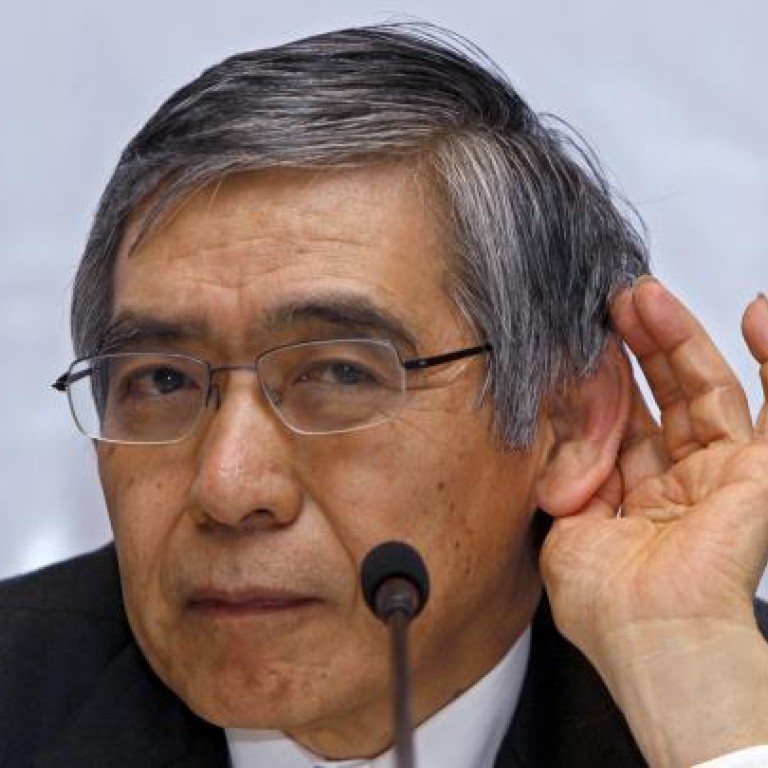
Nomination of Kuroda as next BOJ governor raises hope of stimulus
PM's preferred candidate as governor expected to tilt policy towards additional easing
The president of the Asian Development Bank, Haruhiko Kuroda, has been nominated by Japan's prime minister, Shinzo Abe, to lead the nation's central bank, raising the likelihood of further monetary stimulus this year.
The regime change may tilt the Bank of Japan toward a more expansionary monetary policy, as Abe calls for a per cent inflation target to be reached as soon as possible. The yen has fallen about 11 per cent against the dollar in the past three months as investors assess the possibility of a shift in the bank's stance, with JP Morgan Chase saying that the new leadership could implement more stimulus as early as next month.
Expectations are high, and markets won't be satisfied with just an extension of current policies
"Expectations are high, and markets won't be satisfied with just an extension of current policies," said Masamichi Adachi, a senior economist at JP Morgan. "The new leadership has to show it is different from the previous regime."
The nominations for the two deputy governor positions were Kikuo Iwata, a professor at Tokyo's Gakushuin University, who advocates greater government oversight of the Bank of Japan, and the executive director of the bank, Hiroshi Nakaso, the Japanese parliament said in a statement yesterday.
The current governor, Masaaki Shirakawa, and his deputies will step down on March 19.
Kuroda, 68, advocated an inflation target more than a decade before the central bank adopted one in January, and said this month that additional easing can be justified for 2013.
The first policy meeting for the new leadership is scheduled for April 3 and 4, after Shirakawa's last meeting as governor on March 6 and 7. The deputy governors leaving are Kiyohiko Nishimura and Hirohide Yamaguchi.
The yen continued its February fall yesterday because of speculation that Kuroda would pursue increased stimulus. The Nikkei-225 Index closed 2.7 per cent higher yesterday, for the longest monthly winning streak since 2006.
Shirakawa helped avert damage to Japan's financial system during the 2007-2009 global credit crisis and in the aftermath of Japan's record March 2011 earthquake, while failing to defeat deflation. The gauge of consumer prices excluding fresh food and energy has been negative since January 2009.
The central bank announced in January that it would shift to open-ended asset purchases starting next year, with no additional stimulus for 2013.
At present, the central bank buys securities such as government bonds and exchange-traded funds through a fund targeted to reach 76 trillion yen (HK$6.4 trillion) in assets in December.
Kenji Yumoto, vice-chairman of the Japan Research Institute in Tokyo, said: "The market's focus is shifting to Kuroda, who is expected to do what Shirakawa couldn't, such as buying risk assets and bonds on a larger scale."
Abe needs opposition support to get his nominees through the upper house of parliament, where his Liberal Democratic Party lacks a majority. The ruling party wants committee hearings on the nominees next week, opposition politician Shu Watanabe said yesterday.

